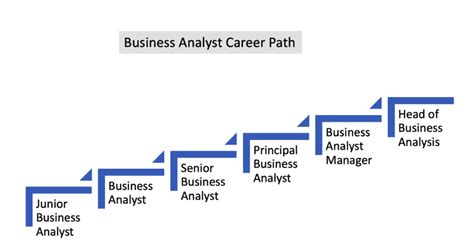Introduction to Business Intelligence Analyst
Business Intelligence (BI) is the process of gathering, analyzing, and presenting data to help businesses make informed decisions. It involves the use of various technologies and tools to extract insights from data, which is then used to drive strategic and operational decisions.
What is a Business Intelligence Analyst?
A Business Intelligence Analyst is a professional who specializes in analyzing data using BI tools and techniques. They work alongside business managers, IT teams, and data scientists to identify trends, patterns, and opportunities that can improve business performance. They are responsible for ensuring data accuracy, conducting analyses, and presenting insights to stakeholders to facilitate decision-making.
The importance of Business Intelligence in today’s business landscape
Business Intelligence has become crucial in today’s fast-paced and competitive business landscape. BI enables businesses to gain insights into customer behavior, market trends, and competitor activities, which helps them stay ahead of the curve. It also helps businesses optimize their operations, reduce costs, and improve their bottom line.
Key skills required to become a successful Business Intelligence Analyst
To become a successful Business Intelligence Analyst, one needs a combination of technical and soft skills. Technical skills include proficiency in SQL, BI tools such as Tableau, Power BI, and data warehousing. Soft skills include communication, problem-solving, critical thinking, and business acumen. A successful BI Analyst is someone who can bridge the gap between technical and non-technical stakeholders, has a passion for data, and is committed to continuous learning and improvement.
Responsibilities of a Business Intelligence Analyst
A Business Intelligence (BI) Analyst is responsible for analyzing complex data and providing insights to stakeholders in an organization. The role involves interpreting data, recognizing trends, and providing actionable insights that can help an organization make informed decisions. The following are the key responsibilities of a Business Intelligence Analyst:
Defining business requirements and KPIs
One of the primary responsibilities of a BI Analyst is to work with stakeholders to define business requirements and key performance indicators (KPIs). This involves understanding the business objectives of the organization and identifying the metrics that can help measure progress towards those objectives. The analyst must be able to communicate effectively with cross-functional teams to understand their requirements and ensure that the data being analyzed is relevant to their needs.
Designing and implementing reporting and data visualization solutions
BI Analysts must have strong skills in data visualization and be able to design and implement reporting solutions that provide stakeholders with insights into key metrics. This involves working with data visualization tools and software to create charts, graphs, and other visualizations that are easy to understand and can help stakeholders quickly identify trends and patterns in the data.
Extracting and analyzing data from various sources
BI Analysts are responsible for extracting data from various sources, such as databases, spreadsheets, and other systems, and analyzing that data to identify trends and patterns. They must be skilled in data mining and have experience with database technologies and SQL. They may also need to work with big data technologies such as Hadoop and Spark to analyze large datasets.
Identifying trends and patterns in data
One of the most important responsibilities of a BI Analyst is to identify trends and patterns in data that can help stakeholders make informed decisions. This requires the ability to analyze data from multiple sources and identify patterns that may not be immediately apparent. BI Analysts must be skilled in statistical analysis and have experience with tools such as R and Python.
Creating and maintaining data models and databases
Read more:
- Maximizing Your Profits with Effective Wabusiness Strategies
- Oracle Business Intelligence: Streamline Your Data
- Google Drive Business: An Essential Tool for Your Team
BI Analysts must be skilled in data modeling and database design, as they are responsible for creating and maintaining data models and databases that can handle large volumes of data. They must be able to work with database technologies such as MySQL, Oracle, and SQL Server, and understand how to optimize queries and manage database performance.
Overall, the role of a BI Analyst is critical to the success of any organization that relies on data to make decisions. By working closely with stakeholders and using their skills in data analysis and visualization, BI Analysts can provide valuable insights that help organizations make informed decisions and achieve their business objectives.
Tools and Technologies Used by Business Intelligence Analysts
Business Intelligence (BI) is a crucial part of modern business strategies. It helps organizations to turn data into actionable insights, drive better decision-making, and gain competitive advantages. Business Intelligence Analysts are professionals responsible for analyzing data and creating reports, dashboards, and visualizations to help stakeholders understand complex data sets and make data-driven decisions. Here are some of the tools and technologies used by Business Intelligence Analysts:
Data Warehouses and Data Lakes
Data Warehouses and Data Lakes are storage repositories that store structured, semi-structured, and unstructured data. Business Intelligence Analysts use these technologies to store and manage large volumes of data from various sources, including internal systems and external sources. Data Warehouses and Data Lakes help analysts to access and analyze data efficiently and effectively.
ETL Tools
Extract, Transform, and Load (ETL) tools are software applications that help to extract data from various sources, transform the data into a common format, and load it into a Data Warehouse or Data Lake. ETL tools automate the data integration process, making it easier for Business Intelligence Analysts to access and analyze data from multiple sources.
Data Visualization Tools
Data Visualization Tools are software applications that help Business Intelligence Analysts to create interactive visualizations of data. These tools enable analysts to present complex data sets in a simple and understandable way, allowing stakeholders to make informed decisions. Popular data visualization tools include Tableau, Power BI, and QlikView.
Reporting Tools
Reporting Tools are software applications that help Business Intelligence Analysts to create reports and dashboards. These tools enable analysts to design and publish reports that provide insights into key performance indicators (KPIs) and other metrics. Popular reporting tools include SAP Crystal Reports, Microsoft SQL Server Reporting Services, and IBM Cognos Analytics.
Database Management Systems
Database Management Systems (DBMS) are software applications that help to manage and organize data stored in a database. Business Intelligence Analysts use DBMSs to access and manipulate data stored in a Data Warehouse or Data Lake. Popular DBMSs include Oracle, Microsoft SQL Server, and MySQL.
Cloud-based BI Solutions
Cloud-based BI Solutions are software applications that provide Business Intelligence capabilities in the cloud. These solutions enable analysts to access data from anywhere, collaborate with team members, and scale up or down as needed. Popular cloud-based BI solutions include Amazon Web Services (AWS) QuickSight, Google Data Studio, and Microsoft Power BI.
Data Analysis Techniques used by Business Intelligence Analysts
Business Intelligence (BI) Analysts are professionals responsible for analyzing and interpreting complex data sets to help companies make better business decisions. They use various data analysis techniques to uncover insights that can guide strategic decision-making. Here are some of the most common data analysis techniques used by BI Analysts:
Descriptive Analytics
Descriptive Analytics is the process of summarizing and presenting data in a meaningful way. It involves analyzing past data to gain insights into what happened and how it happened. BI Analysts use various tools and techniques to create visualizations, dashboards, and reports that help decision-makers understand historical trends and patterns.
Diagnostic Analytics
Diagnostic Analytics is the process of identifying the root cause of a problem or an issue. It involves analyzing data to determine why something happened. BI Analysts use various statistical and analytical techniques such as regression analysis and hypothesis testing to identify the factors that contribute to a particular outcome.
Predictive Analytics
Predictive Analytics is the process of using historical data to make predictions about future events or trends. BI Analysts use various machine learning algorithms and statistical models to forecast future outcomes. They analyze data to identify patterns and make predictions about future customer behavior, market trends, and other factors that may impact business operations.
Prescriptive Analytics
Prescriptive Analytics is the process of using data analysis to make recommendations about what actions to take. It involves analyzing data to determine the best course of action in a given situation. BI Analysts use various optimization techniques and decision models to provide recommendations that can help businesses achieve their goals.
In conclusion, Business Intelligence Analysts play a crucial role in helping companies make data-driven decisions. They use various data analysis techniques such as Descriptive Analytics, Diagnostic Analytics, Predictive Analytics, and Prescriptive Analytics to uncover insights that can guide strategic decision-making. By leveraging these techniques, BI Analysts can help companies optimize operations, improve customer experiences, and drive growth.
 Career Path and Job Outlook for Business Intelligence Analysts
Career Path and Job Outlook for Business Intelligence Analysts
Business Intelligence (BI) analysts are professionals who help organizations make better business decisions by analyzing data. The demand for these professionals has been growing in recent years due to the increasing importance of data-driven decision-making in business. This article will provide an overview of the career path and job outlook for Business Intelligence analysts.
Education and Certifications Required for a Career in Business Intelligence
Most BI analysts have a bachelor’s degree in computer science, information technology, statistics, or a related field. Some employers may require a master’s degree in business administration (MBA) or a related field. Additionally, certifications such as Certified Business Intelligence Professional (CBIP) or the Microsoft Certified Solutions Expert (MCSE) can provide an advantage to job seekers.
Average Salaries for Business Intelligence Analysts
According to Glassdoor, the average base salary for BI analysts in the United States is $76,000 per year. However, salaries can range from $56,000 to $105,000 per year depending on experience and location.
Job Growth and Demand for Business Intelligence Analysts in Various Industries
The job outlook for BI analysts is positive. According to the Bureau of Labor Statistics, employment of computer and information research scientists, including BI analysts, is projected to grow 19 percent from 2016 to 2026, much faster than the average for all occupations. BI analysts are in demand in various industries including healthcare, finance, retail, and manufacturing.
Advancement Opportunities in the Field of Business Intelligence
The career path for BI analysts typically starts at the entry-level and progresses to senior level positions such as BI manager, data analyst, or data warehousing specialist. Advancement opportunities in the field of BI can also include transitioning into roles such as data scientist or business intelligence consultant.
In conclusion, a career in Business Intelligence can be rewarding and financially lucrative for those who are passionate about data analysis and decision-making. With the increasing importance of data in business, the demand for BI analysts is expected to continue growing in the coming years.
Challenges Faced by Business Intelligence Analysts
Business Intelligence Analysts play a crucial role in helping organizations make data-driven decisions. However, they face several challenges in their job that can hinder their effectiveness. Let’s take a look at some of the challenges faced by business intelligence analysts.
Data Quality and Governance Issues
One of the biggest challenges faced by business intelligence analysts is ensuring the quality and governance of data. They need to ensure that the data they analyze is accurate, complete, and consistent. This requires collaboration with different stakeholders to establish data governance policies and procedures.
Lack of Data Integration
Business Intelligence Analysts often have to deal with data silos that are not integrated. This makes it challenging to get a complete and accurate picture of the organization’s performance. They need to find ways to integrate data from different sources to provide a holistic view of the organization’s operations.
Data Security and Privacy Concerns
Business Intelligence Analysts work with sensitive data, and they need to ensure that the data they analyze is secure and protected. They also need to ensure that they are adhering to data privacy regulations and policies, such as GDPR and CCPA.
Difficulty in Communicating Insights and Recommendations to Stakeholders
Business Intelligence Analysts need to communicate their findings and insights to different stakeholders, including executives, managers, and other team members. However, they often face challenges in communicating technical information in a way that is understandable to non-technical stakeholders.
Keeping up with Evolving Technologies and Trends
The field of business intelligence is constantly evolving, with new technologies and trends emerging regularly. Business Intelligence Analysts need to keep up with these changes to remain effective in their jobs. This requires continuous learning and upskilling to stay abreast of the latest trends and technologies.
In conclusion, Business Intelligence Analysts face several challenges in their job, and it’s essential to address these challenges to improve their effectiveness. By focusing on data quality and governance, data integration, data security and privacy, effective communication, and continuous learning, business intelligence analysts can overcome these challenges and provide valuable insights that drive organizational success.
Real-life Applications of Business Intelligence
Business Intelligence (BI) refers to the use of technology, applications, and practices for collecting, integrating, analyzing, and presenting business data. BI enables companies to make data-driven decisions, optimize their processes, and gain a competitive advantage. Below are some real-life applications of Business Intelligence:
Customer Relationship Management
Business Intelligence tools can help companies analyze customer data, such as demographics, behavior, preferences, and interactions. By doing so, companies can identify trends, patterns, and opportunities for cross-selling or upselling. BI can also improve customer satisfaction by providing personalized experiences and timely support.
Supply Chain Management
BI can help companies manage their supply chains more efficiently by providing real-time visibility into inventory, orders, shipments, and suppliers. BI can also optimize the procurement process by analyzing supplier performance, negotiating better pricing, and reducing risks.
Financial Analysis and Reporting
BI can help companies analyze their financial data, such as revenue, expenses, profits, and cash flow. BI can also automate financial reporting, compliance, and forecasting. By doing so, companies can make more informed decisions, improve their financial performance, and mitigate risks.
Human Resources Management
BI can help companies manage their workforce more effectively by providing insights into employee performance, satisfaction, turnover, and retention. BI can also assist in talent acquisition, development, and succession planning.
Marketing and Sales Optimization
BI can help companies optimize their marketing and sales efforts by providing insights into customer behavior, preferences, and buying habits. BI can also improve lead generation, conversion, and retention. By doing so, companies can increase their revenue, profitability, and market share.
Best Practices for Business Intelligence Analysts
Business Intelligence (BI) analysts play a crucial role in helping organizations make informed decisions based on data. To be successful, BI analysts should follow best practices that focus on achieving business outcomes, collaborating with stakeholders, ensuring data quality and security, and staying up-to-date with emerging technologies.
Focus on Business Outcomes and Objectives
BI analysts should always keep the organization’s business outcomes and objectives in mind when analyzing data. By aligning their work with the company’s goals, BI analysts can provide insights that directly impact the success of the business.
Collaborate with Stakeholders and Subject Matter Experts
Collaborating with stakeholders and subject matter experts is crucial for BI analysts to understand the business context and ensure that they are analyzing the right data. BI analysts should work closely with business leaders, IT professionals, and other stakeholders to gather requirements and feedback and to ensure that their analysis is relevant and actionable.
Understand the Importance of Data Quality
Data quality is essential for effective BI analysis. BI analysts should understand the quality of the data they are working with and take steps to improve it if necessary. This includes identifying and addressing data inconsistencies, errors, and missing values.
Ensure Data Security and Privacy
BI analysts must ensure the security and privacy of the data they are analyzing. This includes following best practices for data protection, such as encrypting sensitive data, limiting access to data, and monitoring for unauthorized access.
Continuously Learn and Stay Up-to-Date with Emerging Technologies
BI analysts should continuously learn and stay up-to-date with emerging technologies to stay ahead of the competition and provide the best insights and analysis. This includes attending conferences, reading industry publications, and taking courses to improve their skills and knowledge.
Conclusion
In conclusion, Business Intelligence has become increasingly important in modern businesses. It provides companies with valuable insights into their operations, enabling them to make better decisions and improve overall performance.
Key takeaways from this article include the need for data-driven decision making, the importance of accurate and timely data, and the role of Business Intelligence Analysts in driving business success. These professionals bring a unique set of skills and expertise to the table, helping companies to harness the power of data and turn it into meaningful insights.
Looking ahead, the field of Business Intelligence is expected to continue growing and evolving. As businesses become more reliant on data to inform their decisions, the demand for skilled analysts will only increase. Emerging trends in the field include the use of Artificial Intelligence and Machine Learning to automate data analysis and the growing importance of self-service BI tools that enable business users to access and analyze data on their own.
Overall, Business Intelligence is a critical component of modern business operations. By leveraging the power of data and analytics, companies can gain a competitive edge and drive long-term success.







